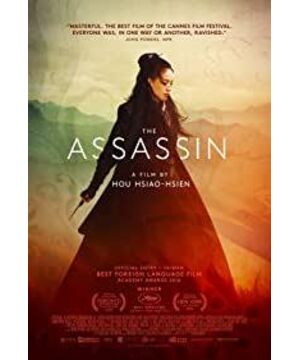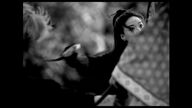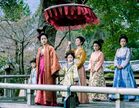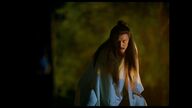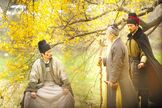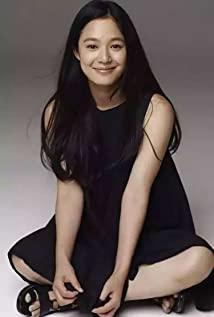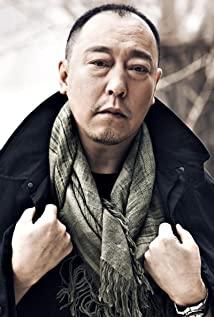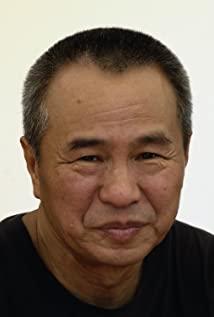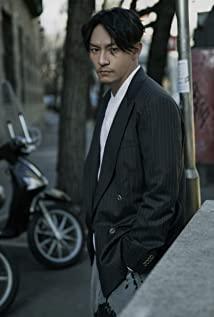Three brushes of "Assassin Nie Yinniang" are finished, and a little superficial impression may be helpful to others. The pictures, details, and charm of this movie are so uncompromising that everyone can see. I won’t say much, just a few clues that will help understand the plot of the story. The following retells the plot according to two clues, one dark and one light. This is a thorough spoiler, trying to interpret the part of the iceberg under the water. The hidden line: Tian Yuanshi unlocked the most important clues of the film’s many foreshadowings, from the list of actors at the end of the film: "Tian Yuanshi / Jing Jinger Zhou Yun" When I saw it, I suddenly realized that Tian Ji’an’s main room was the masked female assassin. It turned out that Tian Ji’an’s maiden name was Yuan. So a few clues were connected, and the plot suddenly became clear and lurking. This is where the level of s emerged. After the woman in black (Nie Yinniang) appeared in the garden for the first time, the Tian Yuan clan stated to Tian Ji'an, "I met him when Li'er was kicking, but fortunately there was no malice. "Tian Ji'an sat down angrily. Then the camera cuts to the scene where the masked killer spirit wanders around with a knife. After knowing that she is the Tian Yuan clan, the story line is very clear: Tian Yuan clan after his son was frightened, I came out as a killer to investigate and confirm the strength of the mysterious woman in black. Tian Yuan’s Yuan surname, the only time mentioned in the movie, was when Tian Ji’an got Yuyu to talk to Hu Ji (concealing Hu Ji?) The story at that time. It is said that he originally married the young lady, but came to a Luozhou governor, so he wanted to marry others, and then said that the young lady stayed in the tree all day, like a phoenix, and ran into the Yuan family. She was injured and almost died. She was taken away by Taoist princess to save her life. After knowing that Tian Yuan’s natal family was Yuan’s family, it became clear here: It turned out that Tian’s family regretted their marriage with Yuan’s family (it should be the Luozhou provincial governor). ) Fixed marriage, and then the young Yinniang (called Yaoniang at the time) infiltrated the Yuan family who snatched her childhood sweetheart (why didn't she go there), was seriously injured, and was eventually taken away by the Taoist princess and became a killer. Looking back, when Yinniang's mother talked to her about the princess, she said that before her death, the last thing she regretted was betraying her. Aggrieved, wronged, betrayed, betrayed. Why use such heavy words? At that time, in the camera, Shu Qi was covering her face in grief and couldn't help herself. We can't understand why she is so sad? After understanding the above hidden clues, Shu Qi's grief could not be more reasonable, and the girl's deep grievance hidden in her heart was explained by her mother. , And I told myself stories back then, played the piano for myself, promised myself a family, and betrayed myself. The mother is dead, so how can I not cry. From this line of Yuan family, there are many things that can be interpreted. After Tian Ji’an was relegated to Tian Xing, he came to see Tian Yuan’s family. After sitting down, a probe saw the hidden Jiang Nu and called out the details of him (he does not accept eavesdropping, he is here to speak face to face). Only then did he talk to Tian Yuan, tell him to demote Tian Xing, ask him to go to Linqing, and send Nie Yu to escort him, and finally said, "Before burying something alive, don’t have it again." That’s it. It sounds like this. It’s very strange, why should I tell my wife that this should not happen again. Of course we understand now. Because Tian Ji’an knows that the previous incident was done by the Tian Yuan clan or the Yuan family’s forces. . It is part of the Yuan clan's seizure of power. He actually came to warn. When the Tian Yuan clan talked about the arrival of the black-clothed woman again, he only said, "You have good ears and eyes", which clearly expresses his dissatisfaction with the Yuan clan's power. Jiang Nu and Kongkonger with white eyebrows and white beards should both be part of the Yuan family's forces. After Tian Yuan clan left Tian Ji'an, there was a long shot. She fell silent and continued to dress up in the mirror. This is not to show off art props or historical research. Returning to Tian Yuanshi's point of view: She didn't expect him to come, but she dressed the mirror, he came, told her "this matter must not happen again", and left. She continued to wear eardrops on herself seriously, then put on another one, straightened her pearl hairpin, and took a self-portrait in the mirror. There are no extra lines, there is great anger and power in Tian Yuanshi's silent dressing. What she is facing is exactly the so-called: "The beauty will be broken before the old grace, and lean and sit in the cage until the Ming Dynasty." The husband no longer regards her as his wife and only uses her as the spokesperson of the Yuan family, and she calls her children every time. It didn't help to come and remind him of this. She was still pretty and it was useless. She must dress up and wear a full set of gorgeous jewelry that marks her identity. In Zhou Yun's silent dressing, there are all the tragedies of Tian Yuanshi's character. Then at first glance, I found it strange and unclear to hunt down, and it became clear that it was actually the forces of the Yuan family who were hunting and killing the lost Tian family. This line of the Yuan family was only explicitly mentioned once in the film. The thread of the clue: Hou Xiaoxian unexpectedly put it in the ending subtitles, and did not use the lines in the film to express it, it is really to the extreme of "hidden". Open line: Before Yinniang was taken away by the Taoist aunt, it was Yinniang, mother's Aao, and Tian Ji'an's Qiqi. Only the audience, the director, and Mr. Subtitles know her another name: Yinniang. Knowing this name also knows her fate: Hidden away. When the girl came home and sat down in the quaint "bathtub", there was a scene of Princess Jiacheng playing the piano and telling the story of the Qingluan dance mirror (there is a large piece of white peony in the background), and then the camera had a close-up on the white peony After a while, she pulled it back, and the girl put on a brand new Chinese dress after the shower. Obviously, she just remembered Princess Jiacheng in the bath. In the memory, the princess was playing the piano for her with a smile, telling the story of Qingluan dance mirror. This is her memory of her identity as a maiden. But the pain contained in Yao Niang’s memories made Shu Qi feel unspeakable sadness when she put on gorgeous clothes after bathing. She was A Yao at that time. After that, she went to her mother’s bedroom to ask for peace and listened to her mother telling the story of the princess. , Has changed back to a black dress that represents the identity of Yinniang. From then on until the end of the film, she and the teenager with the melodious drums walked into the distance and disappeared completely. She has always been the hidden mother of a woman in black. It's not that Aya. Mother gave her Yu Jue, saying that Jue means decisiveness and the princess's decisive heart. Then said that the princess regretted betraying her. Yinniang is embarrassed. Moreover, she is going to kill Tian Ji'an. Many people praised Hou Xiaoxian for photographing the light and shadow turning on the silk, and recording the sound of natural insects and wind blowing leaves in the real environment, but only boasting about these is tantamount to degrading the film as a show of technology. In fact, these lights, shadows and insect sounds are the sensitive eyes and ears of an assassin in the movie, allowing you to watch Yinniang and listen to Yinniang. We actually walked through Tian Ji'an's Weibo court from Yinniang's perspective. The order of Yinniang's observation was also very particular. First, when Tian Ji'an went to court, Yinniang watched quietly in a corner of the main hall. Then, hiding in some place, watching Tian's personal security guard go upstairs to inspect, and went downstairs to no avail, and went upstairs to check again, and then went downstairs when no one was found. Yinniang watched quietly during the whole process. Then Yinniang went to see Tian Ji'an again, and saw that he already had a child and was wrestling and playing with the child, Yinniang watched in silence for a long time. Remember, every lens gazes at the details of Tian Ji'an's life, is the gaze of Yinniang. When you see Tian Ji'an, you must know that Yinniang is watching him at this time. Yinniang decided to return the jade jue, slowly appeared, put down the jade jue, stared, led Tian Ji'an, fought to flee away, and then returned to listen to Tian Ji'an's recollection of the story of the seven days of the year, and heard Hu Ji say "for the seven injustices" (this It may be a motive for Yinniang to rescue Hu Ji). Hearing Tian Ji'an judged that Yao Qi was going to kill him, watching Tian Ji'an and Hu Ji cuddling with each other (this may be another motive for rescuing Hu Ji), and Yin Niang slowly disappeared from the floating silk. This is a beautiful long lens full of emotions, behind the lens is a sad assassin. Yinniang sneaked all the way in, and even entered the empty room. Although there was no clear picture of the hidden Yinniang here, the strange side and rear perspective of the camera suggested her hiding place. Yinniang learned of Yuan's plan to hunt down and kill her father. Only then was she chasing a horse out of the forest to save her father (and the boy who grinds the mirror). The black-and-white paragraph at the beginning confessed that Yinniang was an assassin. Switching to other directors, martial arts scenes, action special effects, must be the highlight of the drama, but the film is handled in line with the rhythm of the poetry. It's as easy as a thorn in a bird, really just a flying thorn. "Kill a person in ten steps, don't stay for a thousand miles." This is Li Bai's writing of a swordsman's speed in killing. In the end, Yinniang fought with the Jingjinger who was chasing after her. "Ning Qingguang", the two fought, staggered, Jing Jing'er's mask split, and she walked in front of Yinniang and walked away. Yinniang resisted the pain of the wound behind her, and slowly walked away. This scene is completely legendary in the Tang Dynasty. Style. When the text was written down, it was a few words, and the scene of Director Hou was also a few words, not extra verbose. Among them, the danger was especially extreme. She sent her father back to Wei Bo, and then went to confess with the master. Tell her that she didn't want to. Kill Tian Ji'an. The reason is that the crown is crowned. If the heir is young, killing Tian Ji'an will cause Wei Bo to be chaotic. The old master is hot, and he said that you have achieved swordsmanship, but you can't cut the relationship between people. In the Tang legend, Yinniang is a powerful spell. Swordsman, Hou Xiaoxian reduced her to a silent assassin who rarely speaks and often gazes in the dark. She feels uncomfortable in her heart and only shines when she squeezes her mouth and hands. She finally left her father decisively. Wei Bo and Master. The mirror-grinding teenager who met with him hides into the vast distant mountains. The line of style, Tang poetry: When it is not from the perspective of Yinniang, the lens of the movie is far and high, not like in the world. Sometimes there are people in the panorama. Sometimes it is a pure and beautiful landscape. This is a kind of lyrical perspective that belongs to Tang poetry, "half the river is sore and half the river is red", "the sky is like a tree, and the riverside is like a moon." ", "Sweeping chests and stratus clouds, determined to enter the home bird. "," After the sunset, there will be solitary smoke in the market. People who have watched movies must be able to think of those shots. Moreover, the style of Tang poetry goes beyond the specific picture and affects the visual language of the movie. Characters have very few lines and are mainly driven by actions. It can be understood that Tang poetry lacks the tradition of dialogue. The language of the lens is always the scene before the people, the people in the scene, and the ending with the scene, it is completely an imitation of the standard style of Tang poetry borrowing scenes from the scene. From this perspective, perhaps the prerequisite (pre-preparation) required to watch this movie is familiarity. Reading Tang poems. Hou Xiaoxian's ethereal lens miraculously accommodates the imagination of the Tang Dynasty shared by many people. This is a journey back to the Tang Dynasty in dreams, and it is also the legend of Yinniang. Those who have seen a movie can certainly think of those shots. Moreover, the style of Tang poetry surpassed the specific picture and affected the visual language of the film. Characters have very few lines and are mainly driven by actions. It can be understood that Tang poetry lacks the tradition of dialogue. The language of the lens is always the scene before the people, and the people are in the scene. The ending with a scene is an imitation of the standard style of Tang poetry borrowing from scenes. From this perspective, perhaps the prerequisite (pre-preparation) needed to watch this movie is to familiarize yourself with Tang poetry. The ethereal lens of Hou Xiaoxian miraculously accommodates the imagination of the Tang Dynasty shared by many people. This is a journey back to the Tang Dynasty, and it is also the legend of Yinniang. Those who have seen a movie can certainly think of those shots. Moreover, the style of Tang poetry surpassed the specific picture and affected the visual language of the film. Characters have very few lines and are mainly driven by actions. It can be understood that Tang poetry lacks the tradition of dialogue. The language of the lens is always the scene before the people, and the people are in the scene. The ending with a scene is an imitation of the standard style of Tang poetry borrowing from scenes. From this perspective, perhaps the prerequisite (pre-preparation) needed to watch this movie is to familiarize yourself with Tang poetry. The ethereal lens of Hou Xiaoxian miraculously accommodates the imagination of the Tang Dynasty shared by many people. This is a journey back to the Tang Dynasty, and it is also the legend of Yinniang. Those who have seen a movie can certainly think of those shots. Moreover, the style of Tang poetry surpassed the specific picture and affected the visual language of the film. Characters have very few lines and are mainly driven by actions. It can be understood that Tang poetry lacks the tradition of dialogue. The language of the lens is always the scene before the people, and the people are in the scene. The ending with a scene is an imitation of the standard style of Tang poetry borrowing from scenes. From this perspective, perhaps the prerequisite (pre-preparation) needed to watch this movie is to familiarize yourself with Tang poetry. The ethereal lens of Hou Xiaoxian miraculously accommodates the imagination of the Tang Dynasty shared by many people. This is a journey back to the Tang Dynasty, and it is also the legend of Yinniang. Those who have watched movies must be reminded of those shots. Moreover, the style of Tang poetry surpassed the specific picture and affected the visual language of the film. Characters have very few lines and are mainly driven by actions. It can be understood that Tang poetry lacks the tradition of dialogue. The language of the lens is always the scene before the people, and the people are in the scene. The ending with a scene is an imitation of the standard style of Tang poetry borrowing from scenes. From this perspective, perhaps the prerequisite (pre-preparation) needed to watch this movie is to familiarize yourself with Tang poetry. The ethereal lens of Hou Xiaoxian miraculously accommodates the imagination of the Tang Dynasty shared by many people. This is a journey back to the Tang Dynasty, and it is also the legend of Yinniang. Those who have watched movies must be reminded of those shots. Moreover, the style of Tang poetry surpassed the specific picture and affected the visual language of the film. Characters have very few lines and are mainly driven by actions. It can be understood that Tang poetry lacks the tradition of dialogue. The language of the lens is always the scene before the people, and the people are in the scene. The ending with a scene is an imitation of the standard style of Tang poetry borrowing from scenes. From this perspective, perhaps the prerequisite (pre-preparation) needed to watch this movie is to familiarize yourself with Tang poetry. The ethereal lens of Hou Xiaoxian miraculously accommodates the imagination of the Tang Dynasty shared by many people. This is a journey back to the Tang Dynasty, and it is also the legend of Yinniang. Those who have watched movies must be reminded of those shots. Moreover, the style of Tang poetry surpassed the specific picture and affected the visual language of the film. Characters have very few lines and are mainly driven by actions. It can be understood that Tang poetry lacks the tradition of dialogue. The language of the lens is always the scene before the people, and the people are in the scene. The ending with a scene is an imitation of the standard style of Tang poetry borrowing from scenes. From this perspective, perhaps the prerequisite (pre-preparation) needed to watch this movie is to familiarize yourself with Tang poetry. The ethereal lens of Hou Xiaoxian miraculously accommodates the imagination of the Tang Dynasty shared by many people. This is a journey back to the Tang Dynasty, and it is also the legend of Yinniang.
View more about The Assassin reviews


